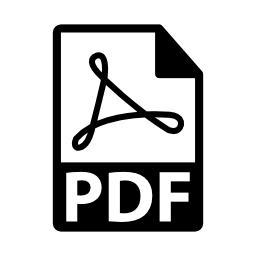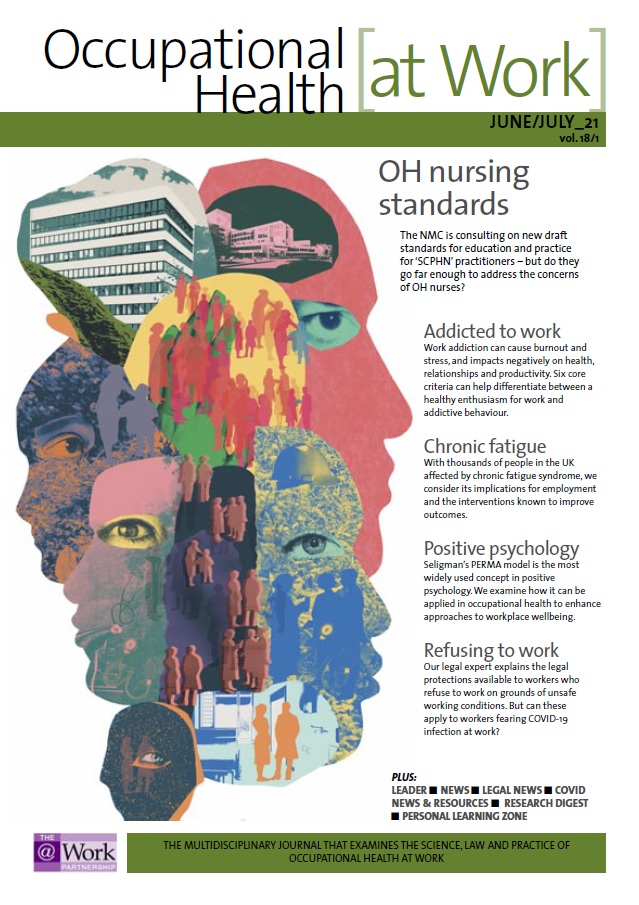June/July 2021 (vol. 18/1)
ContentsFeaturesNewsLegal
NewsResearch DigestResearch PlusCPD
 PERSONAL LEARNING ZONE
PERSONAL LEARNING ZONE
Summary:
This issue of Occupational Health [at Work] features a Personal Learning Zone (PLZ) article recommended for continuing professional development (CPD). The assignment questions, ‘Personal learning statement’ and ‘Certificate of engagement’ are available to subscribers at here. These will also be stored in your password-protected PLZ. The PLZ will help you document your own CPD. Occupational health physicians and nurses, occupational hygienists and other professionals can use the resource in support of their specialism’s revalidation or CPD requirements
FEATURED ARTICLE
Pages 26-30. From fatigue to chronic fatigue syndrome. Chronic fatigue syndrome (CFS) affects tens of thousands of working-age people with many unable to work because of it. But fatigue is best considered as a continuum, with many more people without CFS struggling with persistent tiredness. People with CFS often find it difficult to return to work following absence; so early interventions preventing fatigue becoming chronic can be vital.
ADDITIONAL CPD
The following articles, news and research items are suggested reading for CPD and professional revalidation. Subscribers can complete their online Personal Learning Zone CPD record at here
Page 9. It is important to have a clear strategy when introducing rapid antigen testing kits for use in the workplace to help prevent the spread of COVID-19.
Page 10–12. When deciding whether a person meets the definition of disability under the Equality Act 2010, it is important to focus on what they cannot do, or can only do with difficulty – not on what they can do. This was illustrated in a tribunal case of an employee with Asperger Syndrome.
Pages 13–16. Just because someone works excessively long hours does not mean that they are addicted to work. Six criteria can help identify when an individual has work addiction, a condition that can have serious effects on health, relationships and productivity.
Pages 31–36. OH professionals can use five components of positive psychology (the PERMA framework) to design and advise on wellbeing and stress management strategies.
Pages 37–38. Sections of the Employment Rights Act 1996 protect workers from detriment if they complain about, or refuse to work in, unsafe conditions.
Pages 39–42. Our compendium of recent research includes ongoing studies on PTSD in journalists, the health and wellbeing of lorry drivers, resilience in emergency workers and the impact of loneliness and isolation on mental health at work. An analysis of government-commissioned surveys finds poor adherence to COVID-19 test, trace and isolate guidance
Author: The At Work Partnership Ltd
Occupational Health at Work June/July 2021 (vol. 18/1) pp43



